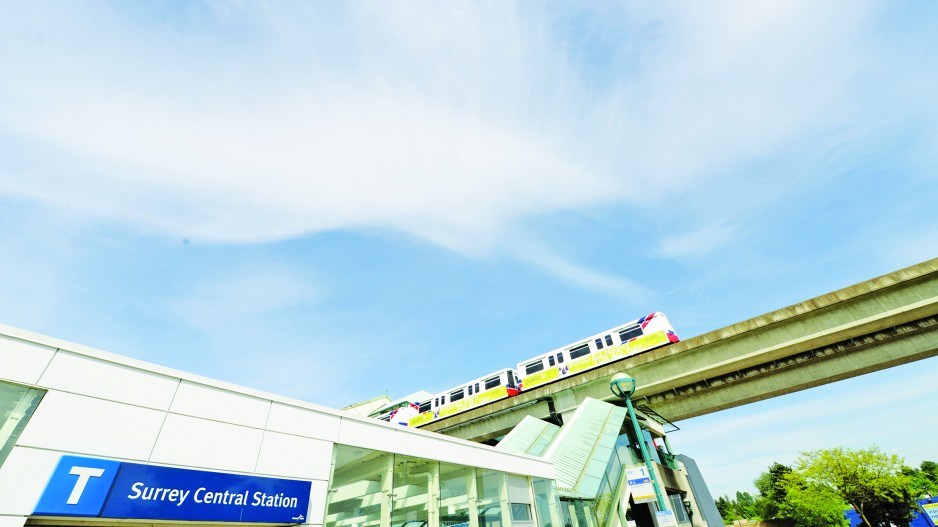Surrey business leaders are OK with “spreading the pain” to pay for transit upgrades throughout Metro Vancouver.
Nancy Petersen, vice-president, chief financial officer and corporate secretary for Fincad, an international financial analytics software company headquartered in Surrey, said the proposed “Metro Vancouver congestion improvement tax” levied across the whole region is an acceptable way to fund upgrades.
“I think it would be a lot fairer if it was something like that – as opposed to penalizing certain people for, say, going over the Port Mann Bridge. I think it would be fairer because there’s going to be a lot of development going on, and it would be better to spread the pain, as they say.”
Petersen said Fincad has multiple employees, including herself, who use the Port Mann Bridge for commuting, and the bill each month is a significant expense. She added that the company’s location in Surrey has hampered the company when it comes to recruiting talent.
“I know previously some people wouldn’t join us because we weren’t in Vancouver. But when they can see it’s easy to get to, through transit, that changes things.”
Petersen estimates a third of Fincad’s staff uses transit to commute to work from various parts of the Lower Mainland. If the Metro Vancouver transit tax referendum passes this coming spring, Surrey is in line for a slew of upgrades. The Mayors’ Council on Regional Transportation website outlines improvements south of the Fraser River including light rail transit along King George Boulevard, 104 Avenue and the Fraser Highway, plus a new four-lane Pattullo Bridge and extended B-Line service to White Rock.
The plan also includes upgrades to the SkyTrain Expo Line that runs into the heart of downtown Surrey. Both the Surrey Board of Trade and the Downtown Surrey Business Improvement Association (DSBIA) have informally backed the tax. Insights West recently released a poll that suggested just over half of Metro Vancouver residents would “definitely” or “probably” vote yes to the proposed 0.5 percentage point increase in the provincial sales tax to fund transit improvements.
Angela Robert, chief executive officer for Conquer Mobile, a Vancouver-based mobile apps developer moving to Surrey from its downtown Vancouver office at the end of January, also says the tax is a good idea.
“Yes, definitely we would support it. I think the upgrades are a necessary thing at this stage.”
Robert is uprooting her 15 staff members to capitalize on Innovation Boulevard, Surrey’s burgeoning health-care technology hub, and lower commercial rental rates. Their office will be located at City Centre 1 on 96 Avenue, near the King George station.
“My initial thought is that transit is really important to people and to businesses,” she added. “Within our office, for example, more than half of our people use transit to get to work. When we were deciding to move to Surrey, the reason that we chose [Surrey] was that it was right by the SkyTrain line.”
Elizabeth Model, the DSBIA’s chief executive officer, said her association supports the tax for various reasons.
“Overall, this is the lowest impact on people,” Model said. “It is also the fairest, in that it’s equitable. Lower-income people pay a lower cost and it is not geographically sensitive like the vehicle levy tax is with the south-of-Fraser folks, who depend more on their cars.”
Model estimates the tax will cost residents an average of $125 per household per year, which works out to around $0.35 a day.




